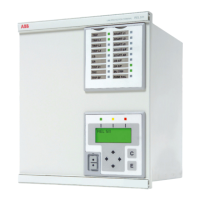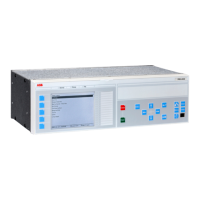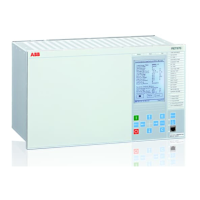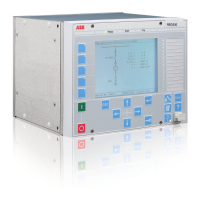8.1.2.8 Series compensation in power systems
SEMOD168320-4 v2
The main purpose of series compensation in power systems is virtual reduction of
line reactance in order to enhance the power system stability and increase
loadability of transmission corridors. The principle is based on compensation of
distributed line reactance by insertion of series capacitor (SC). The generated
reactive power provided by the capacitor is continuously proportional to the square
of the current flowing at the same time through the compensated line and series
capacitor. This means that the series capacitor has a self-regulating effect. When
the system loading increases, the reactive power generated by series capacitors
increases as well. The response of SCs is automatic, instantaneous and continuous.
The main benefits of incorporating series capacitors in transmission lines are:
• Steady state voltage regulation and raise of voltage collapse limit
• Increase power transfer capability by raising the transient stability limit
• Improved reactive power balance
• Increase in power transfer capacity
• Active load sharing between parallel circuits and loss reduction
• Reduced costs of power transmission due to decreased investment costs for
new power lines
Steady state voltage regulation and increase of voltage collapse limit
SEMOD168320-24 v2
A series capacitor is capable of compensating the voltage drop of the series
inductance in a transmission line, as shown in figure
66. During low loading, the
system voltage drop is lower and at the same time, the voltage drop on the series
capacitor is lower. When the loading increases and the voltage drop become larger,
the contribution of the series capacitor increases and therefore the system voltage at
the receiving line end can be regulated.
Series compensation also extends the region of voltage stability by reducing the
reactance of the line and consequently the SC is valuable for prevention of voltage
collapse. Figure
67 presents the voltage dependence at receiving bus B (as shown
in figure
66) on line loading and compensation degree K
C
, which is defined
according to equation
45. The effect of series compensation is in this particular
case obvious and self explanatory.
EQUATION1895 V1 EN-US
(Equation 45)
A typical 500 km long 500 kV line is considered with source impedance
EQUATION1896 V1 EN-US (Equation 46)
Section 8 1MRK 506 369-UEN B
Impedance protection
162 Line distance protection REL670 2.2 IEC
Application manual
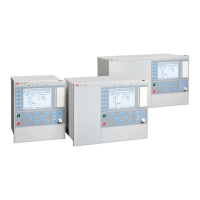
